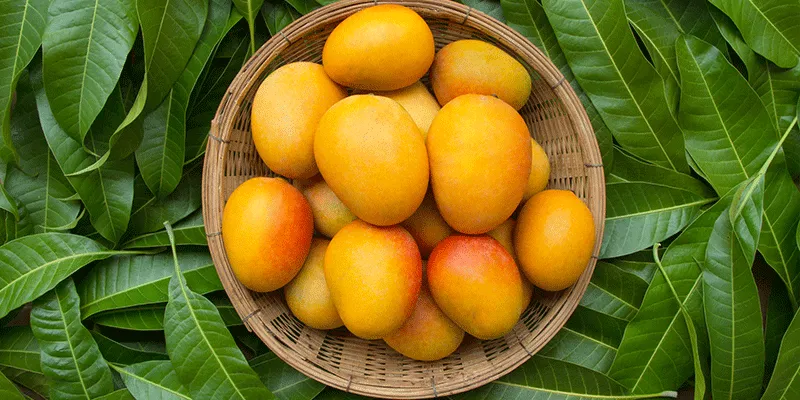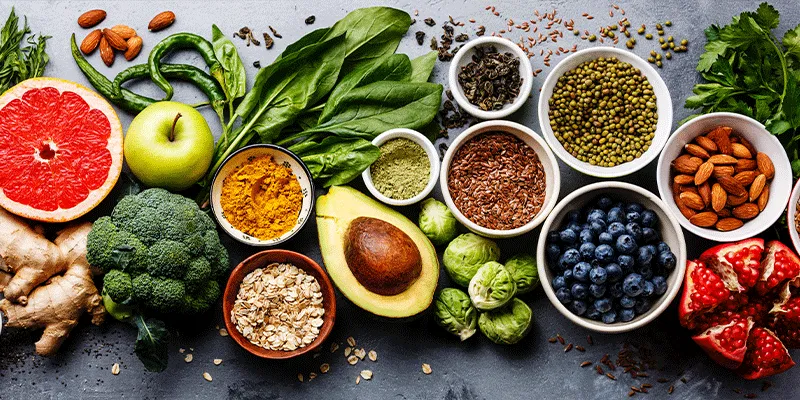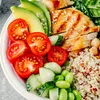Beat the heat: 10 tips to prepare for a sunshine summer
Season changes can be sensitive to your body. As the cold winter gives way to fiery summers, it can trigger a host of potential problems. Here are 10 ways to be summer-ready.
Seasonal shifts are always times of sensitive transformation. These are the times that you are most vulnerable to health challenges as your body takes some time to move from being acclimatised to one season and try to get used to the next one.
Come summer, the coolness suddenly starts to shift to this fiery summer, triggering a host of potential problems, unless you shift a few aspects of eating and lifestyle, which can provide a foundation on which the body adjusts.
What are the 10 ways that you can become summer ready?
The main thing to remember is that the body slowly shifts to a hot one, and if your body is already a predominantly fire one that is prone to skin challenges, anger, heartburn, and headaches, summer can wreak havoc if you do not support your body through this.

Source: Shutterstock
Yet there are several things that you can do to make you more ready for the summer.
Reduce warming grains
Summer is the time to gradually reduce warming grains like bajra and move towards more cooling grains like basmati rice, millet, brown rice, barley, and oats.
This is the time to look for varieties in ancient heirloom versions of rice, and the range of millets that are available including little millet, foxtail, kodo, and barnyard.
Grains are a main part of managing seasonal shifts and tweaking them through the year also allows you to enjoy different versions at different times of the year.
Lentils should have subtle changes
In India, dal-chawal is a big part of traditional eating. Lentils combine with grains to create wholesome and economical meals for many. Just as grains start to shift for summer, the kinds of lentils also shift for summer, or they should.
Lentils such as kidney beans or rajma, chickpeas or chana, masoor, mung, and green mung dal are wonderful in the summer. This is the season to avoid the warming ones like toor dal.
Beta carotene is your body’s natural sunscreen
Eating plenty of fruits and vegetables that are rich in beta carotene is your answer to building internal protection from the harshness of the summer. Orange-coloured fruits and vegetables are especially high in beta carotene, which is a powerful antioxidant that protects you from the harshness of the sun. Eat plenty of spinach, carrots, yellow or dark green vegetables, mint, turnip greens, orange fruits and vegetables, squash, mangoes and kale.

Source: Shutterstock
Choose cooling forms of hydration
Summer is also the time that you dehydrate under the harshness of the heat, and therefore your body will naturally seek out more fluids and watery foods instead of hot and solid foods. Drinks such as processed sodas, caffeine, and alcohol will have a further heating effect on your body.
Drink plenty of cool water, coconut water, aloe vera juice, and pomegranate juice. All these have a tendency to cool your body and prevent you from having health challenges associated with heat.
Avoid blocking your pores with heavy makeup
Strangely, summer is the time many people use more concealers and makeup since they have more acne, boils, eczema, and eruptions. This is because summer has a way of raising histamine levels in the body and skin eruptions are just the symptom. The roots lie in a system which has a high core body temperature, poor ability to shift seasons, a highly congested liver from bad fats and high sugars in the diet, and a tendency for imbalanced hormones.

Source: Shutterstock
Look at keeping your skin free at least at night, allowing it to breathe.
Oiling and massage
There is great wisdom in ancient traditions. Abhyanga or regular massage with cooling oils is a great way to cope with the summer. Gently oiling the whole body with coconut oil and scrubbing with powdered lentils to move your lymphatic system is one of the best ways to manage the summer. What are you waiting for? You don’t need to go to a fancy space for it. You just need to do this yourself!
Be cautious with gut infections
Summer is the time that food spoils very easily. This is also the reason so many people get gastrointestinal infections in summer. This can come from eating food from roadside stalls where hygiene is suspect, eating foods which breed infections when left in refrigerators for too long such as ice creams, and eating foods that are leftover for too long, or reheated again and again. In fact, once a food item that has been in a freezer is defrosted, it should never be used again as microbial breeding can occur very quickly.
It might seem like this is a strange suggestion, but it is surprising how many people end up with gut infections and then end up popping antibiotics for it loosely.
Avoid heating breath practices
There is a trend of people advising long practices of pranayama for everyone, but this can be harmful in the peak of summer. Practices such as kapalbhati should be avoided in excess, especially for those who have a hot body type. These kinds of breathwork can increase the heat within the body and be the very reason someone has more acne, headaches or anger. Look towards calming and cooling practices of pranayama such as alternate nostril breathing.
Fruits are wonderful
Summer is the time that your body will do well with higher sugars and carbohydrates from fruit, as compared to the requirement for more fats and proteins in the winter. Sweet fruits like grapes, cherries, berries, melons, avocados, pomegranates, oranges, and plums can be eaten in plenty. If you have a tendency for extreme fluctuations in blood sugar, eat them whole with the peel and the fibre one hour before your lunch.

Source: Shutterstock
Reduce spices
Spices are potent medicines from your kitchen. They can be very heating, so reduce red chillies, horseradish, wasabi, pippali, mustard, and dry mango powder in the summer. Look towards more cooling spices like cumin, coriander, curry leaves, fennel, mint, and saffron during the summer. Add them into cooling drinks and combine them with your meals, to help your body get through a scorching summer.
Every season is wonderful. All that matters is tweaking your foods and practices to help your body get the very best out of that season!
Edited by Saheli Sen Gupta
(Disclaimer: The views and opinions expressed in this article are those of the author and do not necessarily reflect the views of YourStory.)









